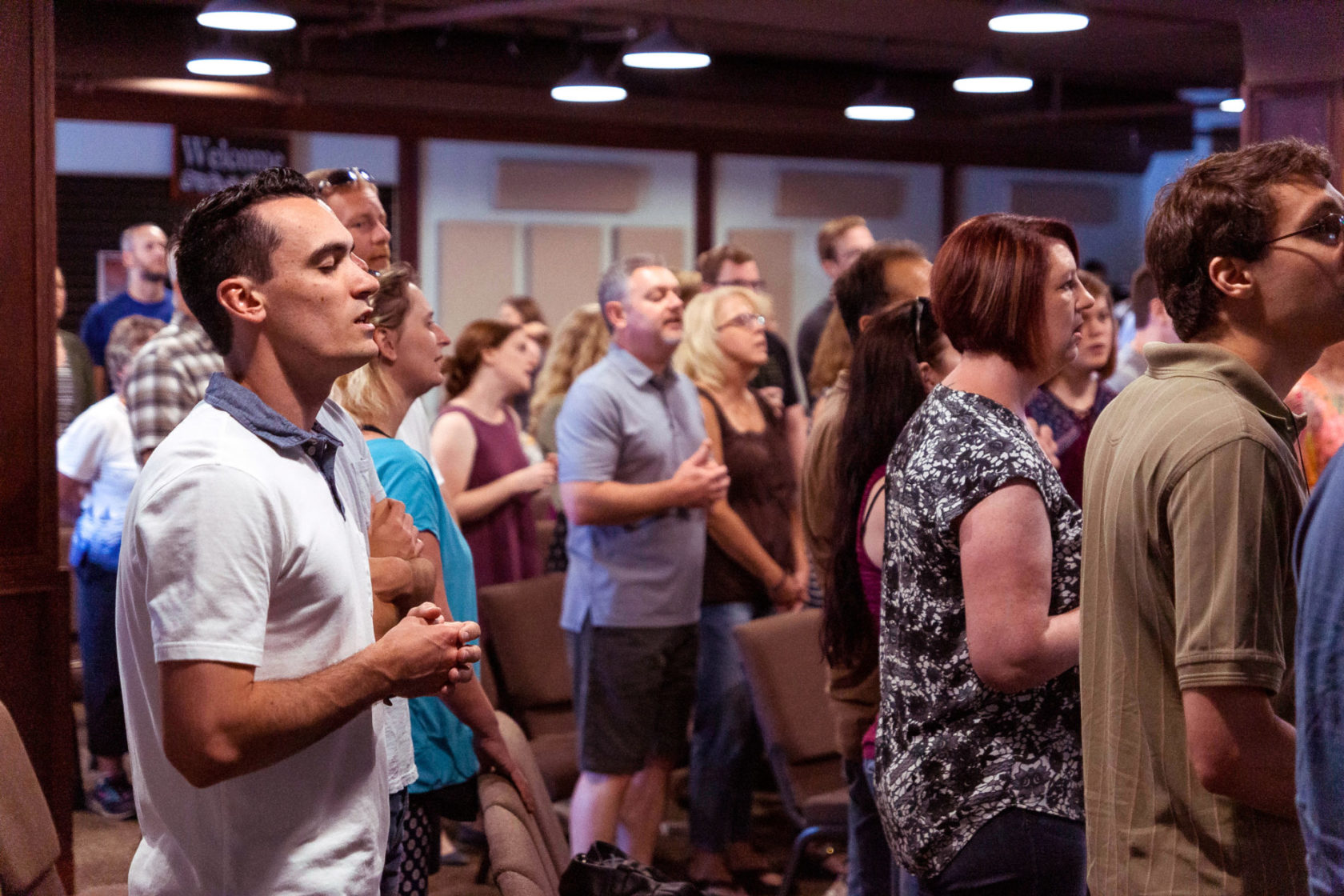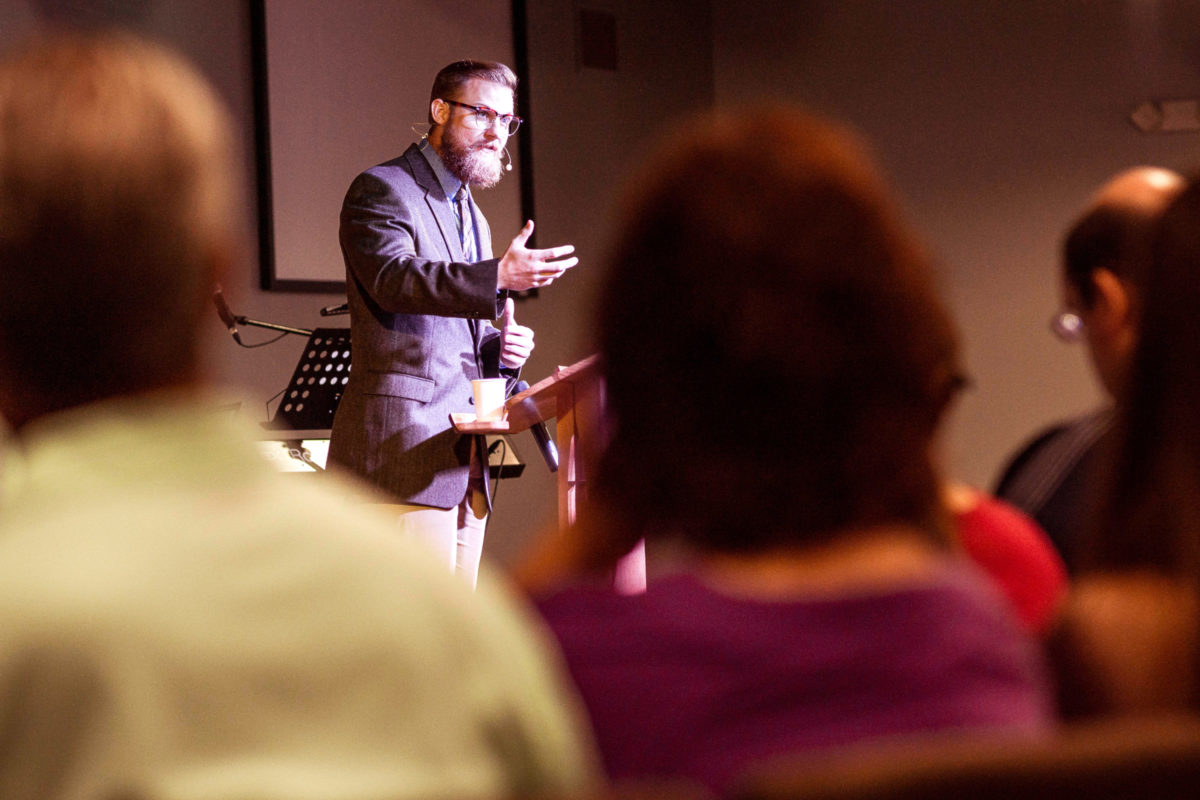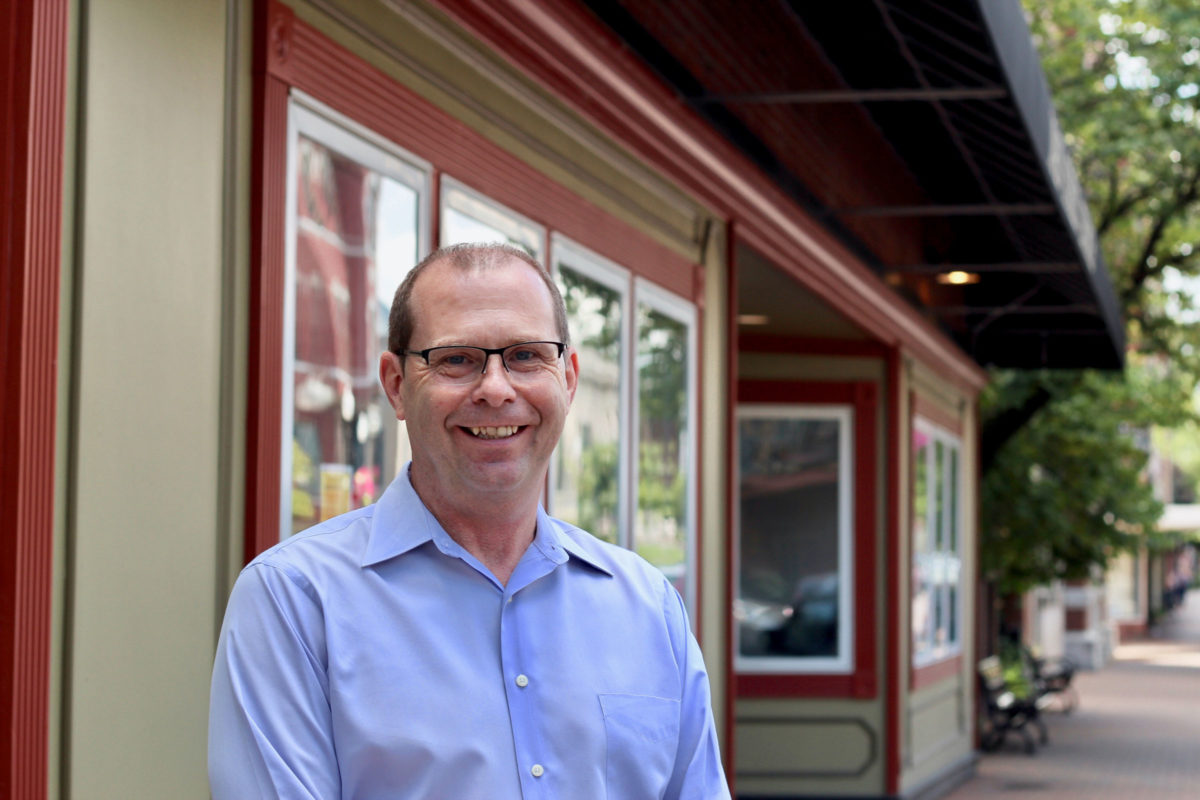Who We Are
Main Street Church is a nondenominational church rooted in Scripture. We blend biblically grounded preaching with Spirit-filled praise to create a gathering where you can experience the transforming power of Jesus.

Main Street Church is a nondenominational church rooted in Scripture. We blend biblically grounded preaching with Spirit-filled praise to create a gathering where you can experience the transforming power of Jesus.

In 2007 a group of believers began meeting in a hotel near Lambert International airport. They wanted to grow together so they could increasingly experience what it meant to be forgiven of sin, made right with God, and live by His Spirit.
In 2011 a building was purchased on historic Main Street in Saint Charles, and Main Street Church was born. Today, our mission is stronger than ever: we exist to experience and communicate the gospel in our community and around the world.

Doug Hon helped form Main Street Church by leading the initial group that gathered to plant in 2007. His visionary leadership and unwavering commitment to lovingly shepherd God’s people continue to define his role as a pastor. In addition to serving as a pastor at MSC, Doug also serves as the leader of LifeLink USA, a network of US churches that partner across the globe with fellow believers in training initiatives and humanitarian efforts. He is a faithful, culture setting presence at MSC, but spends a significant amount of time traveling in order to assist other churches in LifeLink with pastoral and strategic issues.
Doug is also pioneering a Surge Network in Saint Charles, which is a movement of local churches putting Jesus on display in their cities. This effort is in collaboration with scholars from around the country. With a master’s degree in Religion and Culture through the Francis Schaeffer institute at Covenant Theological Seminary, and a gift for bringing people together, Doug is helping shape the future of church life in the greater Saint Louis area.
Doug is married to Sandra, and together they have four children and a growing number of grandchildren.
[email protected]

Casey Peterson joined as a pastor at Main Street Church in 2016. Since that time he has helped guide the church through strategic planning that has involved the implementation of various ministries and shaping everyday church life. He has taken on the majority of the preaching load and functions as the primary shepherd of MSC alongside Doug as he puts his efforts towards other ministry endeavors.
Having grown up as the son of missionaries in South Korea, Casey has had the privilege of gaining cross-cultural experience and seeing the gospel translated into other cultures. He has a heart for seeing biblical truth lived out in all of life with grace and love and desires to see God’s people shaped by the story of Scripture. With an Mdiv from Covenant Theological Seminary and experience as a student pastor, a worship leader, and a campus minister, Casey has been able to bring common life experiences into the light of God’s word in ways that are both relatable and challenging.
Casey and his wife Brittany live in Saint Charles and are blessed with two sons, JJ and Judah, and a daughter, June Belle.
[email protected]
Covenant membership is a commitment to one another—a willing pledge to guard, care, submit, support, and minister together for the building up of our church body. Covenant membership at Main Street Church consists of four steps:
Step 1: Membership Class
Step 2: Baptism (if necessary)
Step 3: Pastoral Interview
Step 4: Covenant Affirmation
Learn More
Our primary reason for serving wine in addition to unfermented grape juice at our times of communion is to intentionally resist pressure to capitulate to a form of legalism (in this case I define legalism as ‘turning a good idea into a biblical mandate’). Leading up to and following Prohibition in our nation many good and faithful Christians advocated for complete abstinence from any and all forms of alcohol; today people who adhere to this lifestyle are called teetotalers. Teetotalism is a good and noble lifestyle, but to demand it of everyone would be to institute restrictions that the Lord himself does not require.
Secondly, our use of wine at communion helps us retain a connection with Christians throughout church history. The use of grape juice in communion is a relatively recent practice. The historical practice of all branches of the Christian church has been to use wine for communion. However, out of a growing concern over drunkenness during the turn of the twentieth century, many protestant churches in America began changing to grape juice. Because grape juice has now become so prevalent, sometimes the practice of serving wine at communion is considered odd (though historically-speaking the use of grape juice would have been considered odd). Some people believe that the use of wine is actually sinful, and this is the reason we make grape juice available for those whose consciences would be violated by the use of wine (Rom. 14).
Thirdly, our use of wine at communion gives us the opportunity to teach God’s people the important principle that “everything created by God is good, and nothing is to be rejected if it is received with gratitude” (1Tim.4:4). Wine is something good given to us by God, but like everything else, its abuse can have devastating effects. This is the same especially with God’s most pleasant creations: beauty, fun/games/play, sex, affirmation, etc. Of course the Christian response is not to prohibit these things completely, but to put them in their rightful place for the glory of God. However, since human sinfulness brings about the abuse of alcohol, special warnings are given to us in Scripture about it (Prov. 20:1; 23:29-35; 31:4-5; Deut.21:18-21; Luke 21:34; Rom.13:13; 1Cor.6:9-10; Eph.5:18). Drunkenness is repeatedly condemned, but nowhere is wine itself forbidden, and nowhere is drinking small amounts criticized. Though there are many dangers, it is inappropriate for us to condemn activities simply because their abuse is dangerous. This is itself condemned in Bible passages like Col.2:20-23 and 1Tim. 4:1-5.
In addition to all this, wine holds a special place in Scripture, being indicative of God’s blessing, and being symbolic of fellowship and celebration (Deut. 14:23; Joel 3:18; Luke 22:18; Ps. 104:15; Isa. 25:6). Jesus’ first miracle was turning water into wine at a wedding (a sign of blessing under the New Covenant), which is likely an intentional contrast with Moses’ first public miracle of turning water into blood (a sign of judgment under the Old Covenant). It appears that Jesus served His disciples wine at the Last Supper which is portrayed as a Passover Feast, so it seems suitable to use the same elements that would have been used in the Lord’s Supper. One caveat here, however, is that the text does not say Jesus took wine, but rather, that he took a cup, and Jesus called it “the fruit of the vine” (Luke 22:18), so grape juice is perfectly acceptable.
While these are the reasons we have for serving wine at our time of communion, we will never try to convince anyone that they should drink wine or any kind of alcohol if they feel in their conscience that they should not, and in some cases complete abstinence is the wise choice. I would expect that every person in our church (and probably any church) has a loved one or has personally been affected by the abuse of alcohol. That makes it a very sensitive subject for many, and as such it should be treated with care, wisdom, and grace.